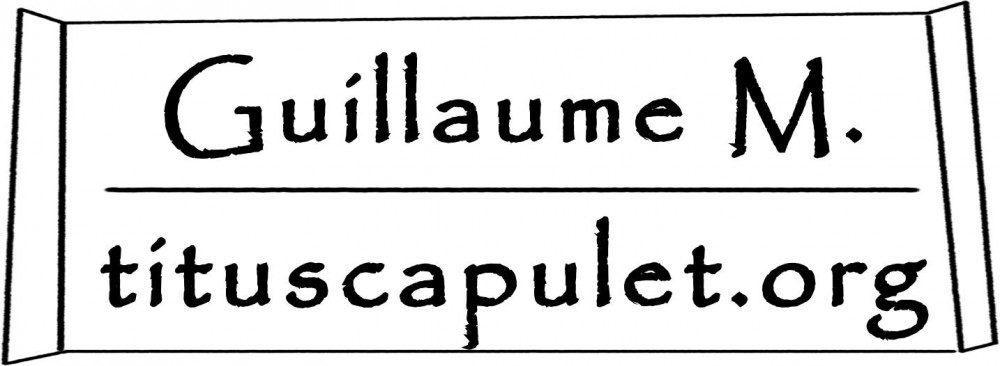A few years ago, my sister offered me The Silmarillion, one of the three milestone books written by J.R.R. Tolkien about The Middle Earth legends (the two others being The Hobbit and The Lord of the Rings). During all these years, I’ve been picking up here and there chapters from this book, which makes me believe I had certainly read the whole thing in the end. However, I had never read it straight from the beginning to the end, as I would do for a more traditional book. Perhaps because of the reputation of the Silmarillion as being closer to a compilation of myths and legends, spanning quite a few centuries and not focusing exclusively on one story and a few characters, I was not tempted at the time to read it the way I just did these last weeks. Indeed, it’s just after I had seen the last Hobbit movie during the Christmas holidays that I decided that it would be quite a good idea to read The Silmarillion the way I would read any other novel. And well, I should have done it before. I think that contrary to some remarks read here and there that this book is notoriously difficult because of its lack of a true core and its plethora of characters, it is on the contrary quite enjoyable. To Tolkien defence, it seems that the Silmarillion was never written in order to being published and it was moreover posthumously released to the public, with Tolkien’s son working on filling gaps between stories that seemed unrelated at first sight.
Anyway, even if it is not a story in the common sense of the term, like The Hobbit or The Lord of The Rings happen to be, The Silmarillion has an amazing quality of its own, being an outstanding collection of myths and legends of the First Age of Middle Earth and Valinor. This is not true that the book lacks a core making it difficult to read. The core lies in the title of the book. It is thus mainly the story of the recovering of the Silmarils by the Noldor, great Elves from Valinor, who came back to Middle-Earth to take the Silmarils back from Melkor Morgoth crown. This quest lasted for a few centuries (fortunately, the Eldar are not far from being immortals, for they have to be slain to taste death – OK their are a few major exceptions I don’t want to detail here). This quest of taking back the most precious jewels of the Earth from the Big Vilain of that time is at the center of the story, and even if it is sometimes a pretext for Tolkien to unveil events not directly linked to the main story, it is never forgotten and it lies quite clearly in the background. And indeed, all the events of the First Age depend on this quest for Silmarils. Anyone who enjoyed the Lord of the Rings or The Hobbit (I am focusing on the books here) should enjoy The Silmarillion a lot. I liked especially the story of Beren and Luthien as well as the story of The Children of Húrin (but a quite depressing story which happened to be developed into an independant book by Tolkiens father – for the material – and son – for the consistency). It seems to me that the events at the end of the First Age would have benefited from a more profound treatment (or should I say a working equivalent to the hours spent on tales such as the one from Beren and Luthien), but I can’t deny that it does not lessen the overall qualities of the book. The Silmarillion is for instance interesting in its depiction of Elves. From wise and near perfect beings in the Hobbit/Lord of the Rings universe, they have lots of flaws in this First Age (at least as far as the Noldor and Sindar kindred are concerned). They kill each other, despise people not from their own lineage and can be corrupted. Well, don’t despair, for some of these elves are good guys (Finrod brother of Galadriel is not far from being the main character of the story for me, despite its too early death…oops sorry for the spoiler). But it is a relief to discover that Elves too have their weaknesses 🙂 .
Only one question remains unanswered : which one is the strongest between a Balrog and a Dragon ? I rooted for Balrogs before reading the book, now I happen to be a Dragon fan. But the truth is we’ll never know for sure, and on the infinite web, the question will divide and haunt fans forever. 😉
